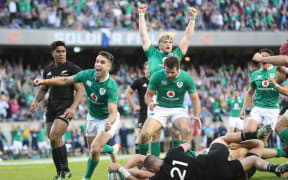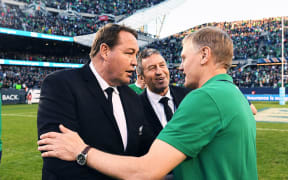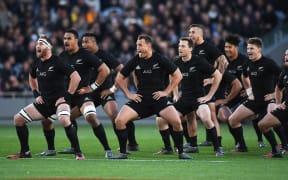Come the day, and come the hour
Come the power and the glory
Opinion - The first two lines of the united Irish rugby anthem rang true this morning, when the men in green finally raised their arms in triumph over the All Blacks. It's been a victory 111 years in the making, but when you look at it, this was perhaps their best chance to do it.
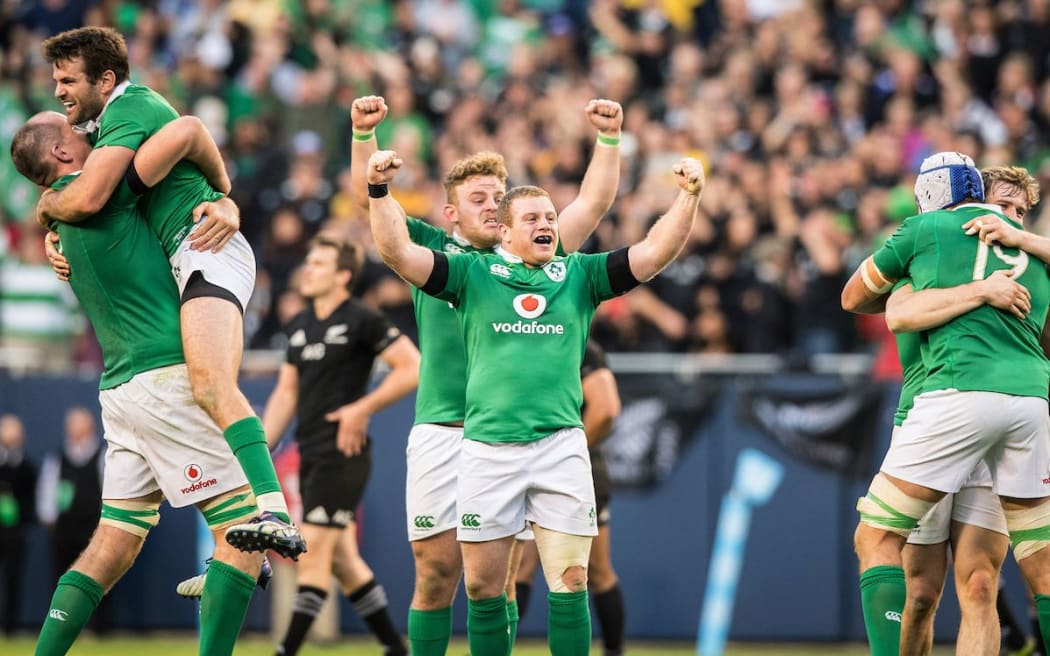
Ireland celebrate their win over the All Blacks. Photo: Photosport
The signs were all there that the All Blacks were ripe for an ambush. They'd finally put away their (somewhat dubious) world record test win streak, they were playing a gimmick match at a neutral venue and weren't even anywhere close to being the most important thing happening in Chicago this week, as the Chicago Cubs won the World Series for the first time since 1908.
Ireland, meanwhile, quietly went about their role in the buildup as the latest morsel on the All Blacks' voracious feast of destruction.
Nobody gave them a chance. Some were already plotting how the All Blacks would end up with an even more gigantic win streak by predicting it would last deep into next season, never mind today.
Before kickoff though, there was an ominous sign. In honour of 62 test Irish rep and Munster coach Anthony Foley, who died of heart failure last month, the team assembled in a figure eight in his honour to face the haka. Even more reason for motivation.
Then there was their game plan. As shown by the Springboks most recently, there is no point trying to out-defend the All Blacks. Gaining a lead and trying to hang on to it is a complete waste of time against a team that can lay on a couple of tries before you can even blink. In fact, that's exactly what the All Blacks did in the second half, but the Irish remained committed to building their lead and running it with pace and aggression.
But it wasn't all down to their run game. Johnny Sexton's masterful option-taking was crucial to their win, directing perfectly placed bombs just outside the All Black 22. One directly led to Conor Murray's try, while plenty more ended up being back in Irish possession.
Perhaps the Irish have taken a leaf out of the Lions' game plan from Super Rugby. It's no coincidence that the South African side enjoyed a dream run to the final by playing up tempo rugby and not wanting to settle for just holding a lead. Just like the Irish, no one gave them a chance until they'd smashed their way into having a home semi-final.
For years now, we've seen Irish teams burst out to a fast start and then fade with fatigue after around 60 minutes of play. In 1992, they all but had the All Blacks at Carisbrook but lost 24-21. In 2001, they were up 21-7 at halftime but wilted to a 40-29 loss as a young Richie McCaw made his test debut. In 2012, they watched Dan Carter get the All Blacks home with a wobbly drop goal in Christchurch for a 22-19 scoreline. Most famously, the last time these two teams met ended in one of the greatest team tries ever and a retaken sideline conversion for a heart-breaking 24-22 Irish loss.
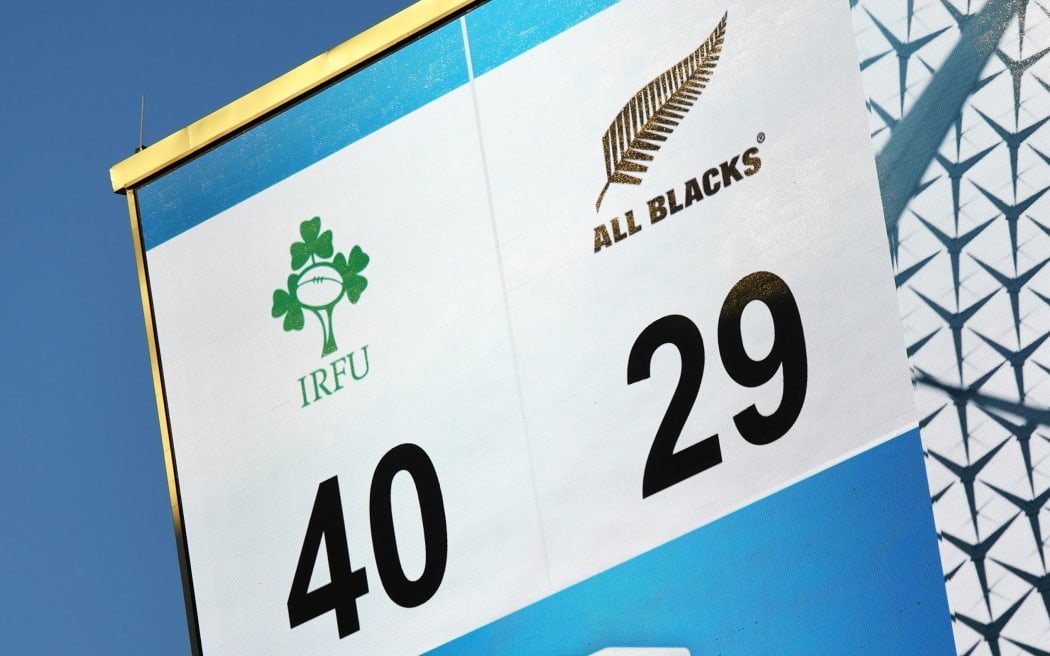
This time Ireland didn't break, they simply got up and fought back. Photo: PHOTOSPORT
At Soldier Field, the Irish watched a 30-8 lead evaporate to 33-29 in a matter of minutes just after halftime. The smugness so long associated with being an All Black fan wafted up strongly around living rooms around New Zealand as it seemed like it was just a matter of time before they shut the game down.
But Ireland didn't break. They didn't even bend, they simply got up and fought back. A brilliant downfield trapped Julian Savea in his own in goal for a five metre scrum, to which conventional wisdom would've suggested holding the ball in the back to kill the clock. Instead of putting their hands up to wait for the round to finish, they went for the knockout punch, sending Robbie Henshaw over to seal the game.
That is how you take out the champion, by standing up and fighting until the bitter end. In a week in which Chicago has seen so much history rewritten, it was fitting that one of the only sporting losing streaks longer than the Cubs was broken as well.
Jamie Wall grew up in Wellington and enjoyed a stunningly mediocre rugby career in which the sole highlight was a seat on the bench for his club's premier side. He's enjoyed far more success spouting his viewpoints on the game to anyone who'll care to listen.
